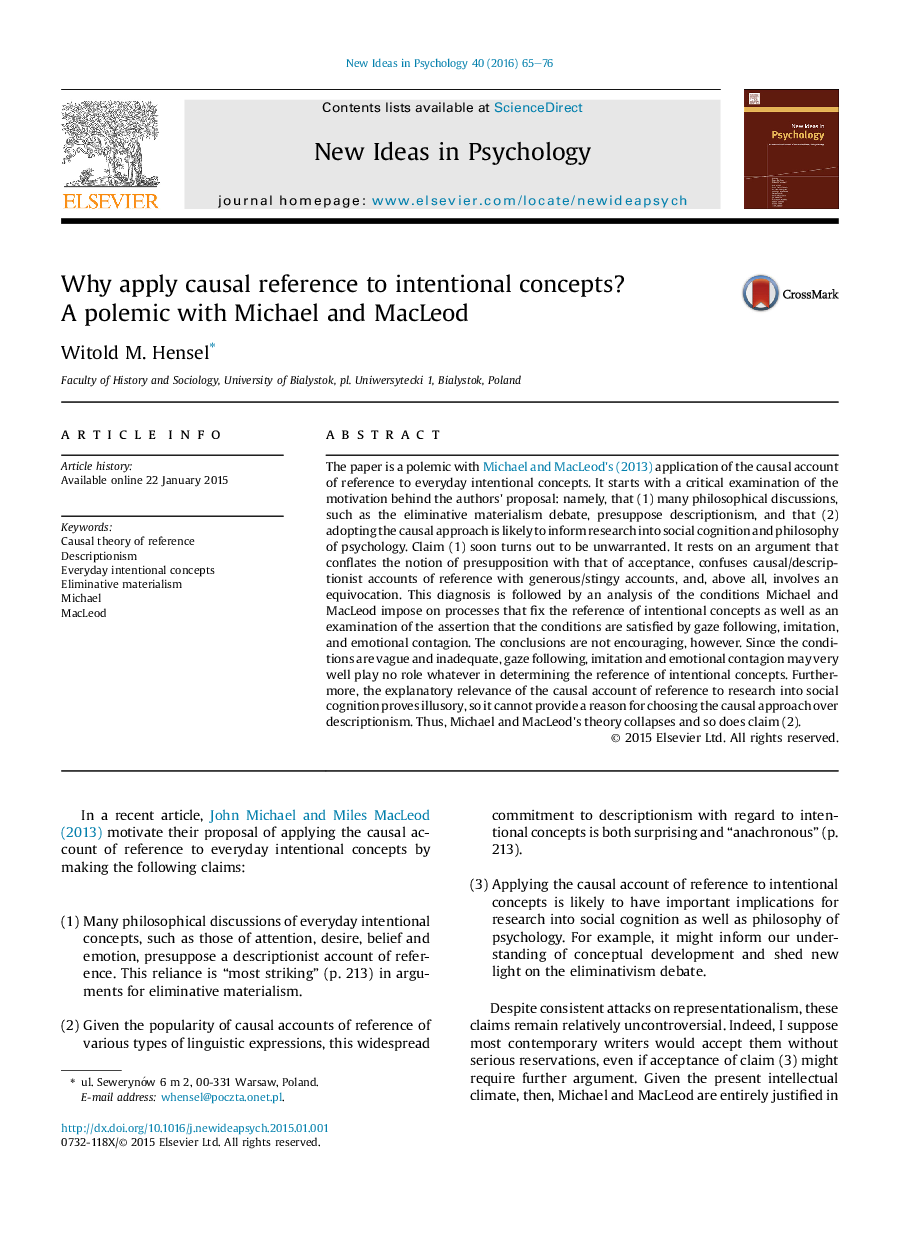| کد مقاله | کد نشریه | سال انتشار | مقاله انگلیسی | نسخه تمام متن |
|---|---|---|---|---|
| 331628 | 544640 | 2016 | 12 صفحه PDF | دانلود رایگان |
The paper is a polemic with Michael and MacLeod's (2013) application of the causal account of reference to everyday intentional concepts. It starts with a critical examination of the motivation behind the authors' proposal: namely, that (1) many philosophical discussions, such as the eliminative materialism debate, presuppose descriptionism, and that (2) adopting the causal approach is likely to inform research into social cognition and philosophy of psychology. Claim (1) soon turns out to be unwarranted. It rests on an argument that conflates the notion of presupposition with that of acceptance, confuses causal/descriptionist accounts of reference with generous/stingy accounts, and, above all, involves an equivocation. This diagnosis is followed by an analysis of the conditions Michael and MacLeod impose on processes that fix the reference of intentional concepts as well as an examination of the assertion that the conditions are satisfied by gaze following, imitation, and emotional contagion. The conclusions are not encouraging, however. Since the conditions are vague and inadequate, gaze following, imitation and emotional contagion may very well play no role whatever in determining the reference of intentional concepts. Furthermore, the explanatory relevance of the causal account of reference to research into social cognition proves illusory, so it cannot provide a reason for choosing the causal approach over descriptionism. Thus, Michael and MacLeod's theory collapses and so does claim (2).
Journal: New Ideas in Psychology - Volume 40, Part A, January 2016, Pages 65–76
